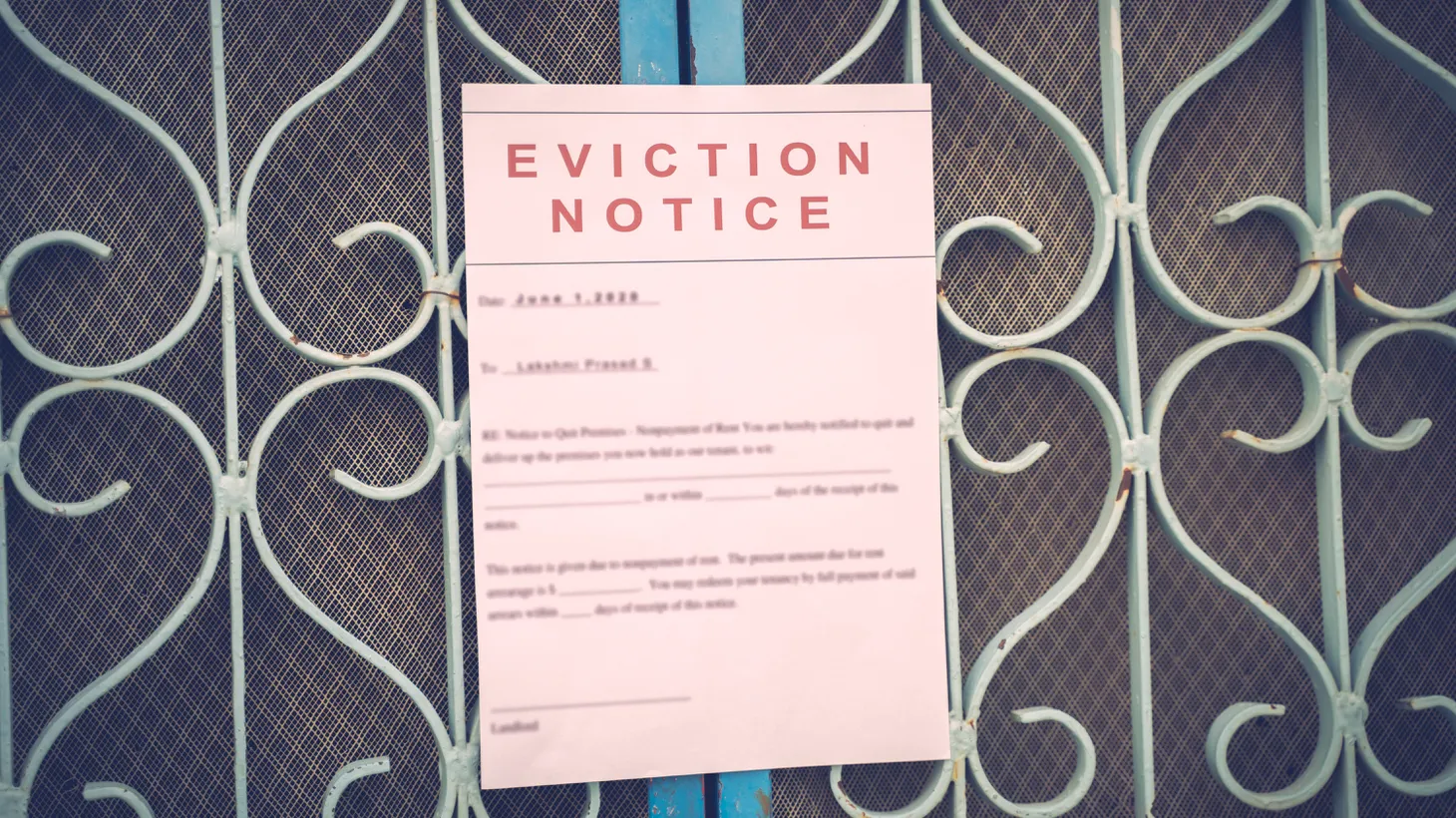Read the Spanish version here.
During the pandemic, temporary tenant protections were credited with drastically decreasing the number of evictions in Los Angeles county. According to Kyle Nelson, a UCLA postdoctoral fellow who tracked evictions during COVID, the number of eviction lawsuits went down by more than half at the height of the pandemic, from about 40,000 to 50,000 annual filings to just 13,000.
At the city level, a handful of new tenant protections have now been made permanent, and Los Angeles County has now extended its protections until the end of March.
But nevertheless, eviction filings — which never fully stopped in LA — have already shot back up to pre-pandemic levels in recent months. Meanwhile, the National Equity Atlas estimates that 182,000 people in LA county are still behind on rent.
The countywide eviction support program Stay Housed LA says it expects about 50,000 Angelenos to receive eviction notices this year. And because tenants in eviction court do not have a right to counsel the way defendants in criminal cases do, many of those tenants will be navigating the court process without a lawyer.
But while landlord-tenant law can be complex, there are some steps tenants facing eviction can take to make the process less daunting:
- File an answer as soon as possible.
Failure to respond to an eviction notice is one of the most common ways tenants lose eviction cases.
When a landlord begins the eviction process, they are legally required to provide the tenant with two notices. The first, often called a “three day notice to pay rent or quit,” outlines the reason for the eviction and gives information about how the issue might be resolved.
Once the deadline listed on the initial notice passes, the landlord is able to file an eviction lawsuit in court. They must then notify the tenant of that filing with another set of documents, called a “summons and complaint.”
After those documents are served, tenants have five court days to file an answer to the lawsuit. This gives them the option to fight back. Tenants who do not file an answer are at risk of receiving a default judgment, allowing the landlord to win the case automatically.
Thousands of tenants lose their homes after receiving default judgments each year, so filing this response is a critically important step for those who want to fight for their homes. Recently, a group of housing advocates and academics launched a resource called the Tenant Power Toolkit, which aims to make the answer-filing process easier.
The free tool, which is available in both English and Spanish, asks tenants a series of questions and identifies possible defenses they can use in court. In some cases, it can also electronically file the answer paperwork.
For tenants who miss the five-day deadline, there may still be time to file if their landlord has not yet filed a motion for a default judgment. Tenants can call or visit the clerk’s office to find out the status of their case.
- Find legal help.
The court process that comes after the answer gets a little more complicated, and getting legal assistance from someone who is well-versed in landlord-tenant law can help.
Currently, tenants facing eviction in Los Angeles are not guaranteed a free lawyer to help them in court, although some politicians and housing advocates are pushing to enact a right to counsel in the city.
For now, those who can’t afford to hire their own lawyer might be offered representation through the countywide tenant outreach and education initiative Stay Housed LA, which has enough funding to provide about 3,300 lawyers to Angelenos facing eviction each year.
For those who don’t get assigned a lawyer, the program offers a wide range of in-person workshops and webinars that offer guidance on things like local tenant rights, the eviction process, and COVID-19 rental debt.
The nonprofit Eviction Defense Network also offers webinars several times a week, which coach tenants who are representing themselves in court about how to prepare defenses. In addition, county courthouses also house several self-help legal access centers, which can help tenants navigate paperwork and connect them with other legal aid.
- Seek community support.
Dealing with an eviction lawsuit can be overwhelming and emotionally draining when you’re doing it alone, and some tenants might want to seek help from community members going through similar experiences.
Community organizing groups like the Los Angeles Tenants Union, the Alliance of Californians for Community Empowerment (ACCE), or Strategic Actions for a Just Economy (SAJE) aim to support tenants by keeping renters up to date on their rights, bringing together people to share their own eviction experiences, and giving renters a voice in the ever-changing political debates surrounding housing policy in Los Angeles.
Read more: Could guaranteed eviction lawyers help LA tenants stay housed?

